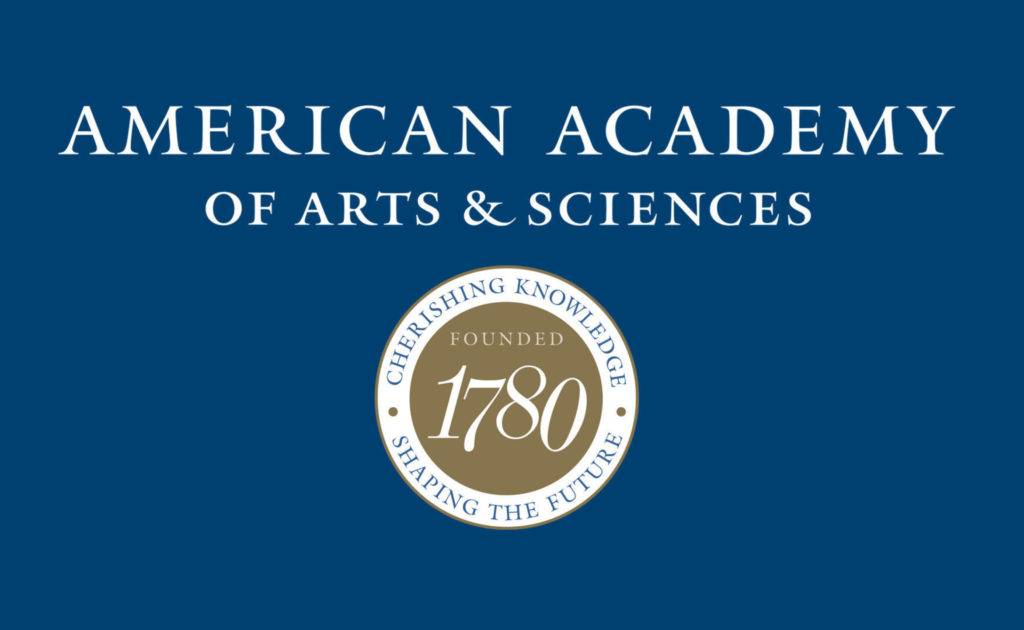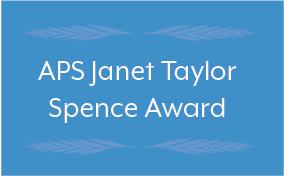American Academy of Arts & Sciences Elects Eight APS Fellows

The American Academy of Arts & Sciences has elected 261 new members for 2022, including at least eight APS Fellows whose research covers aspects of human behavior ranging from how mental and behavioral disorders impact aging to the neural basis of abstract thought.
Announced April 26, members of the class of 2022 “excel in ways that excite us and inspire us at a time when recognizing excellence, commending expertise, and working toward the common good is absolutely essential to realizing a better future,” said David Oxtoby, president of the academy. The honorary society and independent research center was founded in 1780 and has elected members since 1815. Members are grouped into 30 sections, organized within five classes: Mathematical and Physical Sciences; Biological Sciences; Social and Behavioral Sciences; Humanities and Arts; and Leadership, Policy, and Communications.
Seven APS Fellows were elected to the academy’s Psychological Sciences section (within the Social and Behavioral Sciences class):
- Avshalom Caspi is the Edward M. Arnett Professor of Psychology & Neuroscience at Duke University and a professor of personality development at the Institute of Psychiatry, Psychology, & Neuroscience, King’s College London. Caspi is a charter member of APS.
- Jonathan D. Cohen is the Robert Bendheim and Lynn Bendheim Thoman Professor in Neuroscience, and a professor of psychology and neuroscience, at Princeton University. Cohen received the APS William James Award in 2018.
- Naomi Ellemers is a distinguished university professor of social and behavioral sciences at Utrecht University.
- James Gross, a charter member of APS, is the Ernest R. Hilgard Professor of Psychology at Stanford University.
- Vonnie C. McLoyd is the Ewart A. C. Thomas Collegiate Professor of Psychology at the University of Michigan, as well as a past member of the APS Board of Directors.
- Terrie E. Moffitt is the Nannerl O. Keohane University Professor of Psychology at Duke University and a professor of social development at King’s College London.
- Rebecca Saxe is the John W. Jarve Professor in Brain and Cognitive Sciences at the Massachusetts Institute of Technology and an associate member of the McGovern Institute for Brain Research.
In addition, Richard Ivry, a Distinguished Professor of Psychology at the University of California, Berkeley, was elected to the academy’s Neurosciences section (within the Biological Sciences class). Ivry is both an APS William James Fellow and the current treasurer of the APS Board of Directors.
Dozens of other APS Fellows have been elected to the academy over the years. They include APS Mentor Award recipient BJ Casey in the class of 2021, current APS Board member Seth Pollak and APS Past President Suparna Rajaram in the class of 2020, and current APS Board member Michele J. Gelfand and John T. Wixted, featured in this APS podcast for his research on eyewitness testimony, in the class of 2019.
Other individuals elected to the American Academy of Arts & Sciences over the decades have included Charles Darwin, Martha Graham, Martin Luther King, Jr., and Michelle Obama.
Feedback on this article? Email [email protected] or scroll down to comment.
Related: Early-Career Research Award
-
APS Janet Taylor Spence Award for Transformative Early Career Contributions
The APS Janet Taylor Spence Award recognizes APS members who have made transformative early career contributions to psychological science.






APS regularly opens certain online articles for discussion on our website. Effective February 2021, you must be a logged-in APS member to post comments. By posting a comment, you agree to our Community Guidelines and the display of your profile information, including your name and affiliation. Any opinions, findings, conclusions, or recommendations present in article comments are those of the writers and do not necessarily reflect the views of APS or the article’s author. For more information, please see our Community Guidelines.
Please login with your APS account to comment.